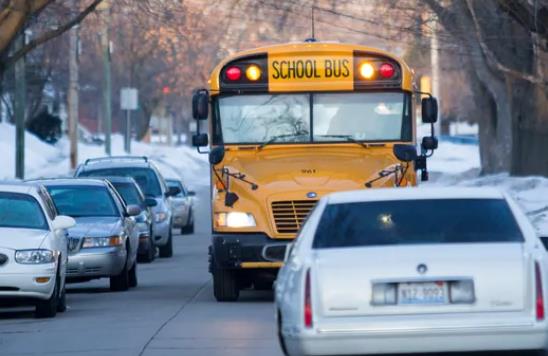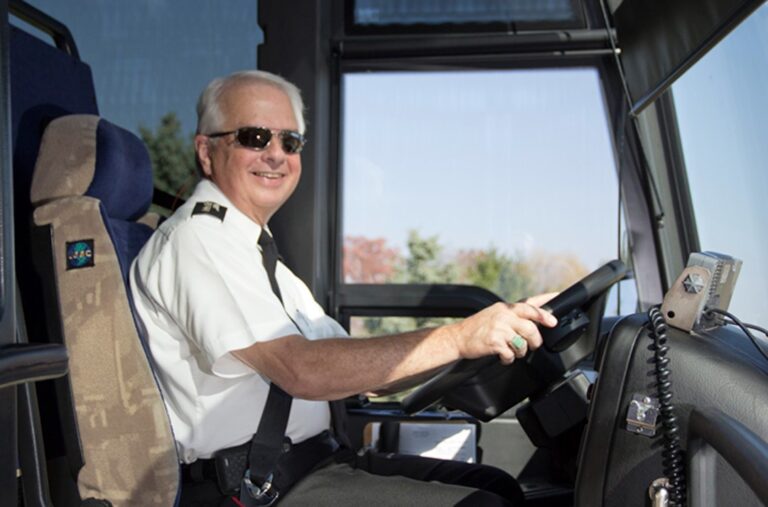Are School Buses Manual Or Automatic? Quick Answer
This article will explain Are School Buses Manual Or Automatic? The question of whether school buses are manual or automatic is a topic of interest for many. In the past, manual transmissions were the norm, but recent advancements have seen a shift towards automatic transmissions. This article will explore the various aspects of school bus transmissions, offering insights into their operation, advantages, and the trends shaping their use.
Key Takeaways
- Prevalence of Automatic Transmissions: Modern school buses predominantly use automatic transmissions for their ease of use and safety.
- Decline of Manual Transmissions: Manual transmissions in school buses are becoming less common due to their operational complexity.
- Impact on Driver Training: The shift to automatic transmissions affects driver training and recruitment.
- Considerations for School Districts: Factors like cost, maintenance, and driver preference influence the choice between manual and automatic.
Are School Buses Manual Or Automatic?
Most modern school buses are equipped with automatic transmissions. This trend towards automatic transmissions is due to their ease of use, safety, and lower maintenance requirements compared to manual transmissions.

The Current State of School Bus Transmissions
Overview of Transmission Types in School Buses
Most modern school buses now come equipped with automatic transmissions. This shift is driven by the ease of operation, improved safety, and lower training requirements for drivers.
Automatic transmissions eliminate the need for gear shifting, which can be particularly advantageous in stop-and-go traffic conditions typical of school routes.
Advantages of Automatic Transmissions
Automatic transmissions in school buses offer several benefits:
- Ease of Use: They simplify the driving process, making it easier for new drivers to learn.
- Safety: With fewer distractions from gear shifting, drivers can focus more on road conditions and student safety.
- Maintenance: Generally, automatic transmissions require less frequent maintenance than manual ones.
Challenges with Manual Transmissions
Manual transmissions, while still in use in some older models, present certain challenges:
- Complex Operation: They require more skill and training to operate effectively.
- Driver Fatigue: Manual gear shifting can be more tiring, especially on longer routes.
Impact on Driver Training and Recruitment
The transition to automatic transmissions in school buses has significant implications for driver training and recruitment. Training programs can be shorter and more focused, as drivers no longer need to learn complex gear-shifting techniques. This can widen the pool of potential drivers, making it easier for school districts to recruit.

Considerations for School Districts
When deciding between manual and automatic transmissions for their fleet, school districts consider several factors:
- Cost: Automatic buses can be more expensive upfront but may offer savings in maintenance and training.
- Driver Preference: Some experienced drivers may prefer manual transmissions, though this is increasingly rare.
- Operational Needs: The specific routes and conditions in which the buses operate can influence the choice.
Technological Advancements in School Bus Transmissions
The evolution of transmission technology has played a crucial role in the shift towards automatic transmissions. Advancements in electronic control systems have made automatic transmissions more reliable and efficient, catering to the demanding needs of school transportation.
What Transmissions Do School Buses Have?
School buses primarily use automatic transmissions, a trend that has been growing over the past few decades. This shift from manual to automatic is driven by several factors.
Firstly, automatic transmissions simplify the driving process, making it easier for drivers to focus on road safety rather than gear shifting. Secondly, they reduce the physical and cognitive load on drivers, enhancing overall safety – especially in stop-and-go traffic common in school routes.

Finally, the maintenance requirements for automatic transmissions are generally lower compared to manual transmissions, although the initial cost might be higher. Today, the majority of new school buses are equipped with automatic transmissions, and this is reflected in the preferences of school districts and transportation companies.
Are Coach Buses Automatic Or Manual?
Coach buses, used primarily for long-distance travel, have historically been equipped with manual transmissions. However, there has been a significant shift towards automatic transmissions in recent years.
The preference for automatic transmissions in coach buses is due to similar reasons as in school buses – ease of operation, safety, and reduced driver fatigue during long journeys.

Automatic transmissions in coach buses also contribute to a smoother ride, which is an important factor for passenger comfort on longer trips.
The trend towards automatic transmissions in coach buses is expected to continue, mirroring the broader automotive industry’s shift towards automation and ease of use.
Are There Any Automatic Buses?
Yes, there are many automatic buses in operation today. The transition to automatic transmissions is not limited to school and coach buses but is a widespread phenomenon across various types of buses, including city transit buses.
The reasons for this transition include operational efficiency, ease of driving, reduced maintenance, and improved fuel economy. Automatic transmissions are particularly advantageous in urban environments where frequent stopping and starting are common.
Many city buses now come equipped with sophisticated automatic transmission systems designed to handle the demands of urban traffic while providing a comfortable ride for passengers.
The trend towards automatic buses is part of a larger movement in the automotive industry towards vehicles that are easier to operate and more efficient.
Conclusion
In conclusion, the trend in school bus transmissions leans heavily toward automatic models. This shift is influenced by the benefits of ease of use, safety, and maintenance.
School districts must weigh various factors when choosing their fleet, but the overall direction is clear: automatic transmissions are the future of school transportation.
The move towards automatic transmissions reflects not just a change in technology but a broader commitment to safer, more efficient school transportation solutions.
Top FAQ’s
What future trends are expected in school bus transmission technology?
The trend is moving toward more advanced automatic transmission systems with increased efficiency, reliability, and integration with other vehicle technologies such as hybrid and electric powertrains. This evolution aims to further improve fuel efficiency, reduce emissions, and enhance the safety and comfort of school transportation.
How do transmission types affect fuel efficiency in school buses?
Modern automatic transmissions have become very efficient, often matching or surpassing manual transmissions in terms of fuel economy. This is due to advancements in transmission technology that optimize gear shifts for maximum efficiency.
Can manual transmission school buses be converted to automatic?
Conversion is technically possible but rarely practical or cost-effective. It involves significant modifications to the transmission system, which can be expensive and time-consuming.
Do automatic transmissions impact the overall cost of operating a school bus?
While automatic transmissions may be more expensive initially, they often lead to lower long-term costs due to reduced maintenance needs and the availability of drivers, as training is generally simpler and quicker.

Welcome to the exhilarating world of Matt Rex, a professional car racer turned renowned vehicle enthusiast. Immerse yourself in his captivating blog as he shares heart-pounding adventures, expert reviews, and valuable insights on cars, trucks, jets, and more. Fuel your passion for speed and discover the beauty of vehicles through Matt’s engaging stories and meticulous expertise. Join the ever-growing community of enthusiasts who find inspiration and expert advice in Matt Rex’s blog—a digital hub where the thrill of speed meets the pursuit of knowledge.







